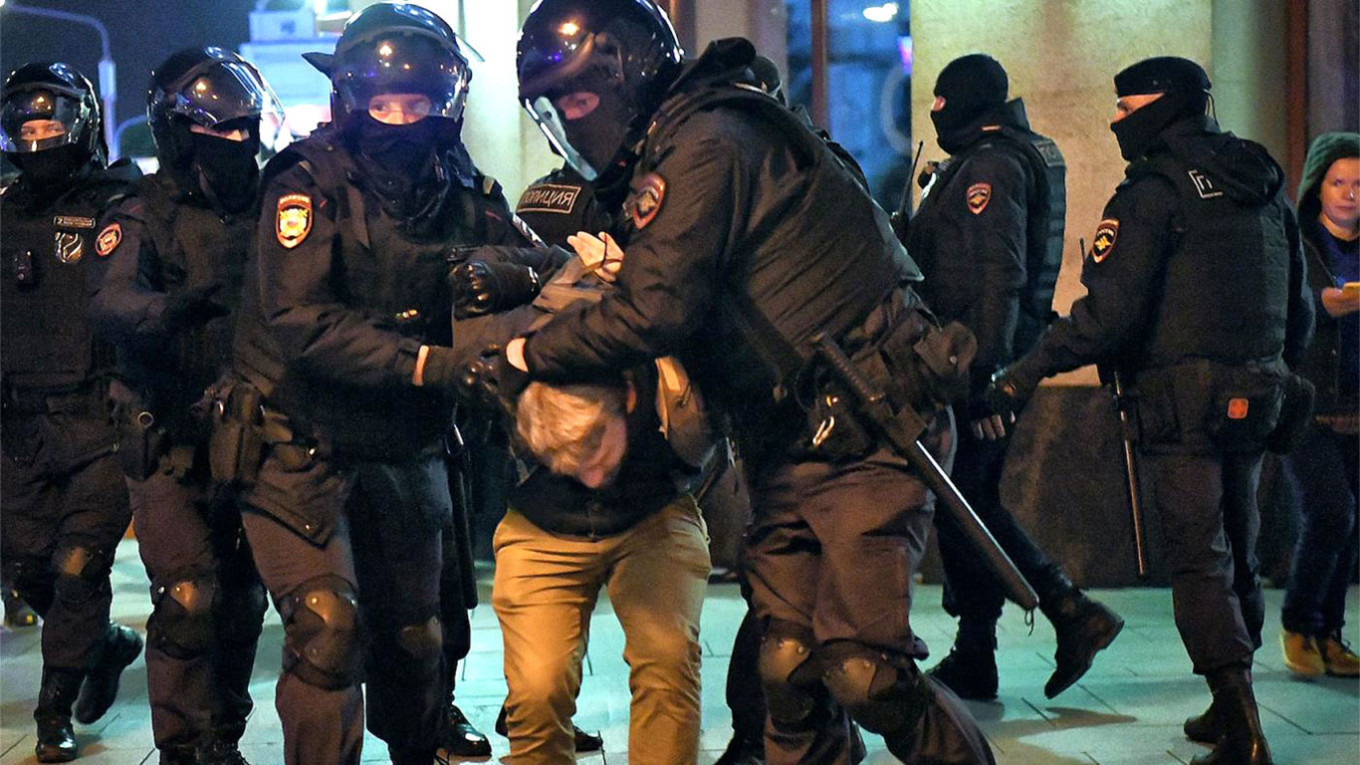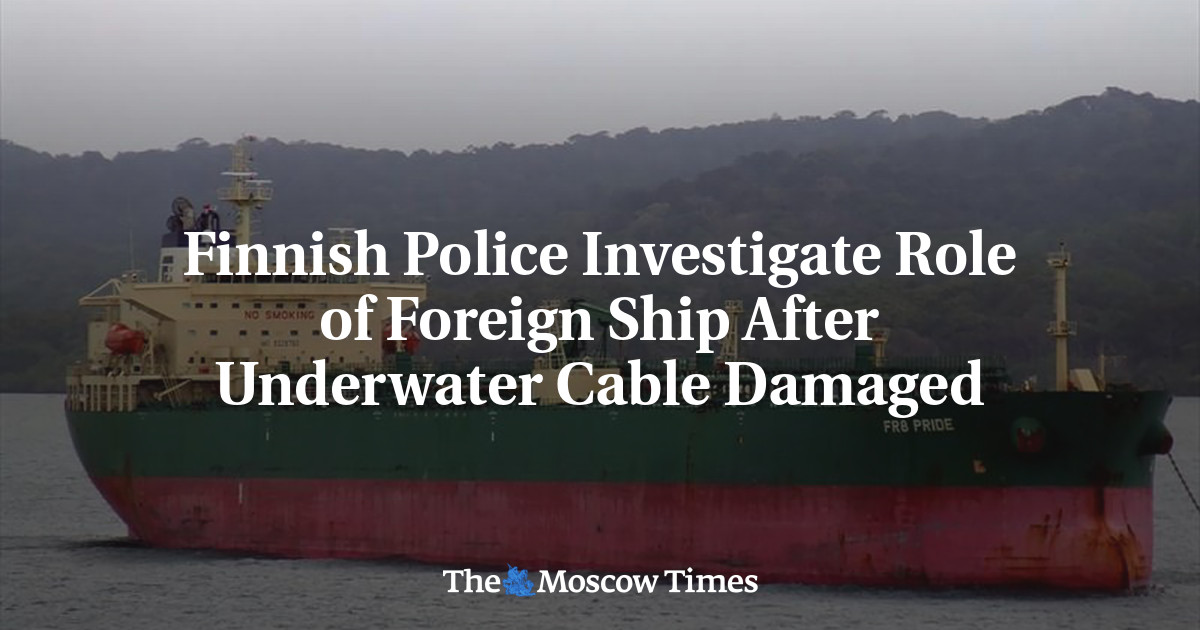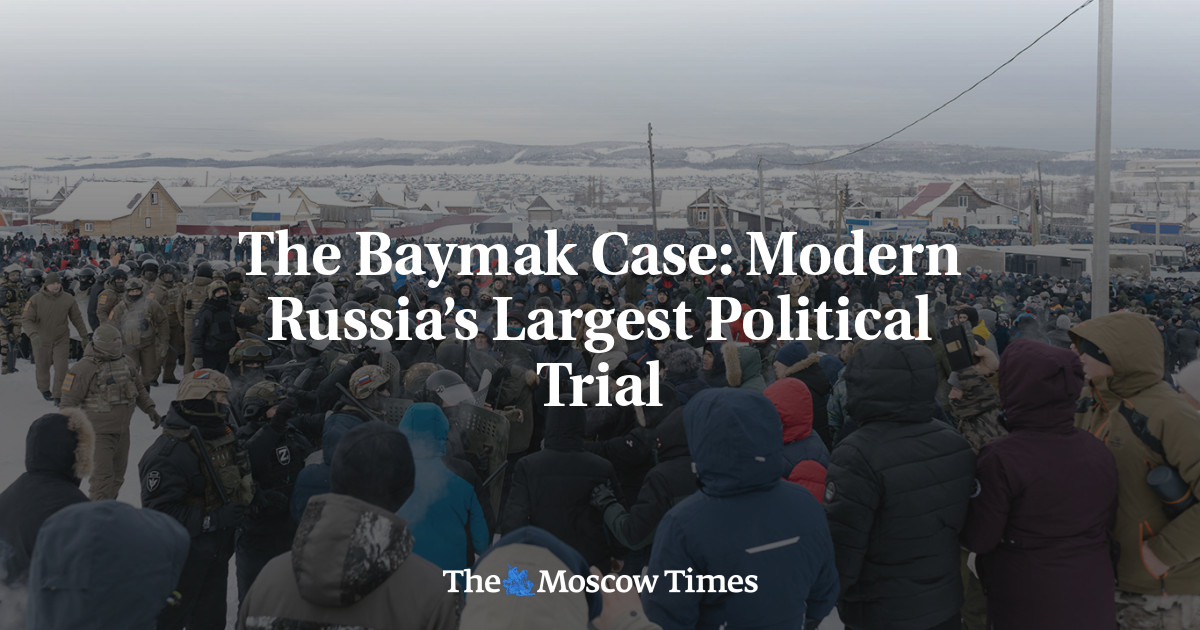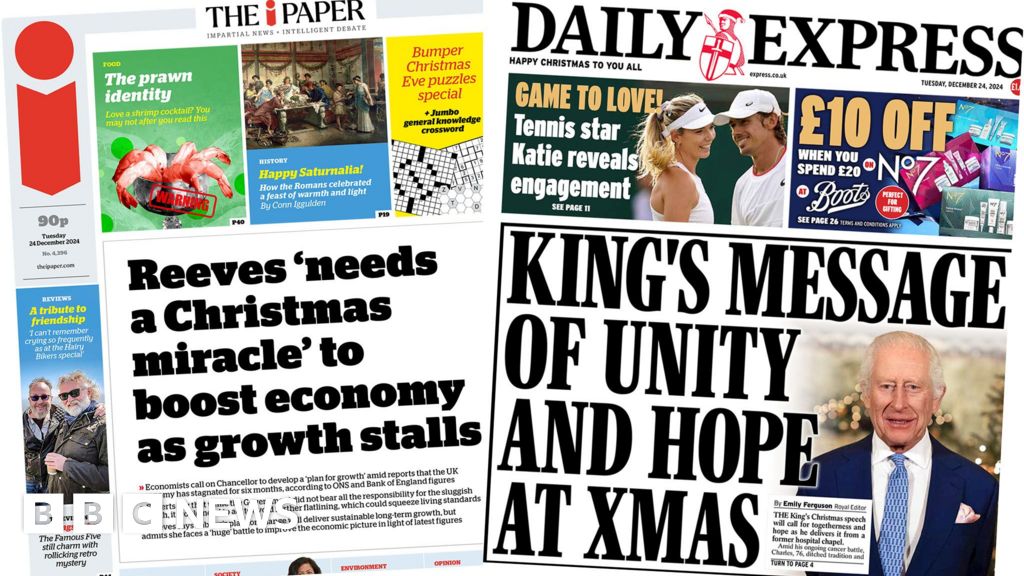 van Vodopyanov / Kommersant
van Vodopyanov / Kommersant
The head of Russia's human rights council on Wednesday called Moscow's major crackdown on dissent part of "sanitary measures" while the country fights in Ukraine, denying the existence of political repression.
Russia has banned criticism of its war on Ukraine, handing out prison terms or fines to those who denounce it. All of President Vladimir Putin's opponents are in exile or prison, or dead.
"What we see now — yes, it is a difficult and tough situation, we are at war with the West," the head of the presidential human rights council Valery Fadeyev said, according to the Interfax news agency.
"And some minimal restrictions on those who are actually on the side of the enemy are not repressions, but minimal sanitary measures."
Asked if the presidential council would lobby for amnesties as was previously the case, Fadeyev said: "This is not on the agenda right now."
Russian officials have repeatedly used the term "cleansing" to refer to the ostracizing of Russians who oppose the Ukraine war, with Putin himself in 2022 calling for the "cleansing" of "traitors" from Russian society.
Russian Foreign Minister Sergei Lavrov at the start of this year said Moscow's Ukraine offensive was "contributing to the cleansing" of Russian society.
Hundreds of thousands of Russians have fled their country since the Kremlin sent troops to Ukraine.
It is illegal in Russia to publicly criticize the Kremlin's actions in Ukraine, an offense punishable by jail.
According to the OVD-info rights group that monitors political repression in Russia, Moscow has initiated over 9,000 criminal proceedings against its citizens for "discrediting the army."
Rights groups say hundreds of Russians are currently in prison for their political beliefs, with many warning that the figures are under-counted.
Putin's main political opponent, Alexei Navalny, died in an Arctic prison colony earlier this year.
A Message from The Moscow Times:
Dear readers,
We are facing unprecedented challenges. Russia's Prosecutor General's Office has designated The Moscow Times as an "undesirable" organization, criminalizing our work and putting our staff at risk of prosecution. This follows our earlier unjust labeling as a "foreign agent."
These actions are direct attempts to silence independent journalism in Russia. The authorities claim our work "discredits the decisions of the Russian leadership." We see things differently: we strive to provide accurate, unbiased reporting on Russia.
We, the journalists of The Moscow Times, refuse to be silenced. But to continue our work, we need your help.
Your support, no matter how small, makes a world of difference. If you can, please support us monthly starting from just $2. It's quick to set up, and every contribution makes a significant impact.
By supporting The Moscow Times, you're defending open, independent journalism in the face of repression. Thank you for standing with us.
Continue
![]()
Not ready to support today?
Remind me later.
 (1).png)
 1 month ago
12
1 month ago
12













